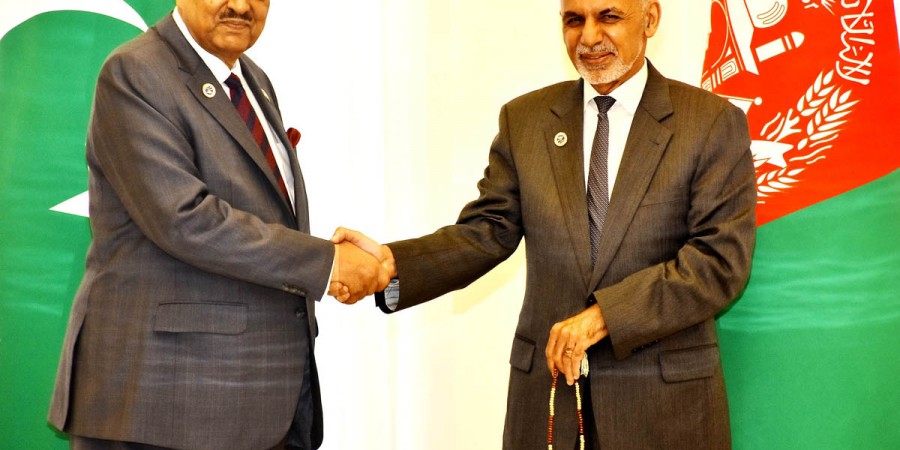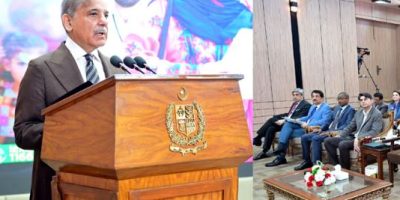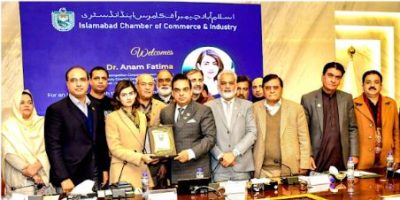Pakistan, Afghanistan agree to evolve a mechanism for consultation on bilateral issues

TASHKENT, 24 JUNE (DNA) – Pakistan and Afghanistan have agreed to evolve a high-level mechanism for consultation and coordination on bilateral issues. The decision was taken at a meeting between Adviser on Foreign Affairs Sartaj Aziz and Afghan Foreign Minister Salahuddin Rabbani on the sidelines of SCO Summit in Tashkent on Friday.
In a joint statement issued at the end of the meeting stated the proposed mechanism will be co-chaired by Sartaj Aziz and Afghan Foreign Minister. Adviser Aziz and Foreign Minister Rabbani reiterated the mutual desire for strengthening bilateral relations for promoting peace, stability, counter terrorism and economic progress of both the countries.
Towards this end, it was agreed to enhance mutual engagement in diverse areas to deepen cooperation.The mechanism will also have a joint technical working group to deal with the concerns of the two countries.
The main purpose of this Mechanism would be not only to address and resolve issues of concern to both sides through amicable means but also to prevent the recurrence of violent incidents like the ones witnessed recently in Torkham.
It will help resolve issues and prevent the recurrence of violent incidents like the ones witnessed recently on Torkham border. On the occasion, the two countries reaffirmed their respect to each other’s territorial integrity and adherence to the principle of non-interference into internal affairs.
Sartaj Aziz and Afghan Foreign Minister reiterated mutual desire for strengthening bilateral relations to promote peace, counter terrorism, and accelerate economic progress. The two sides stressed the need for continuing joint efforts to promote peace and reconciliation in Afghanistan.
The two sides specifically expressed their firm commitment to continue serious efforts towards eliminating the scourge of terrorism which poses a grave threat to the peace and security of the two countries, and the region. In this regard, they emphasized the need for close cooperation and coordination between the two countries at all levels.
While discussing bilateral relations, the two sides stressed the need for continuing joint efforts to promote peace and reconciliation in Afghanistan through timely and concrete actions resulting in tangible outcomes, including in the framework of the Quadrilateral Coordination Group process. DNA
Related News

Govt taking practical steps to eradicate polio disease from Pakistan: PM
He was talking to President Global Development Gates Foundation Dr. Chris Elias who along withRead More

DMA pledges One-Window System for Islamabad traders
ISLAMABAD, JAN 28 /DNA/ – Director Municipal Administration (DMA) Islamabad, Dr. Syeda Anam Fatima, visitedRead More


Comments are Closed